Canterbury Gurkha's attempt to climb Mount Everest nears
- Published
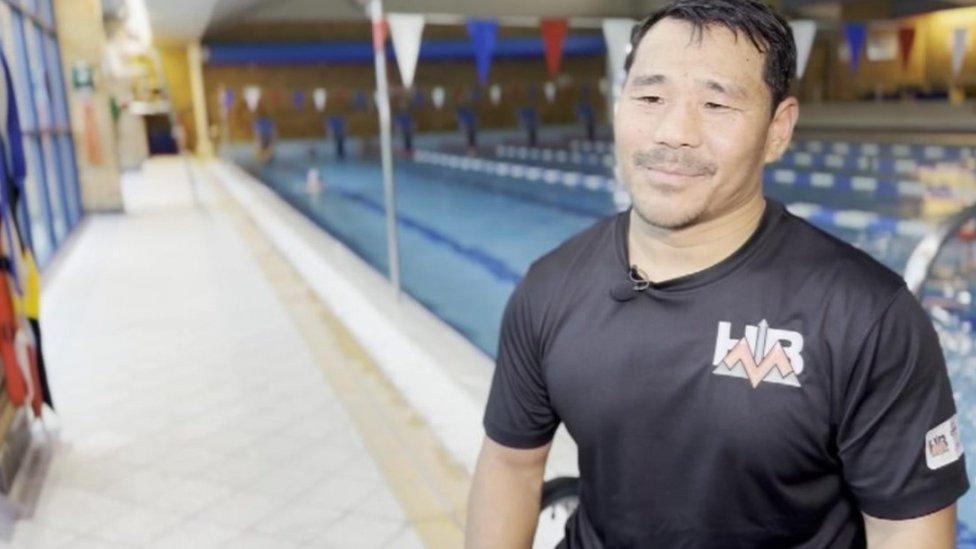
Mr Magar has been swimming for an hour every day as part of his training
A former soldier in the Gurkha regiment who lost both his legs in Afghanistan is in the final stages of intense training to climb Mount Everest.
Hari Budha Magar, who grew up in Nepal before moving to Canterbury, is aiming to be the first double above-the-knee amputee to scale the mountain.
He is confident in securing the remaining funding to enable him to undertake the challenge in six weeks.
"I feel that I'm doing something right," he told BBC South East.
The 43-year-old, who moved to Kent in 2009, lost his legs when he stepped on an improvised explosive device (IED) in Afghanistan in 2010.
When he woke up after the blast, the father-of-three said he felt like his "life was finished".
"I will sit in a wheelchair and need a carer for the rest of my life - that's what I thought," he said.
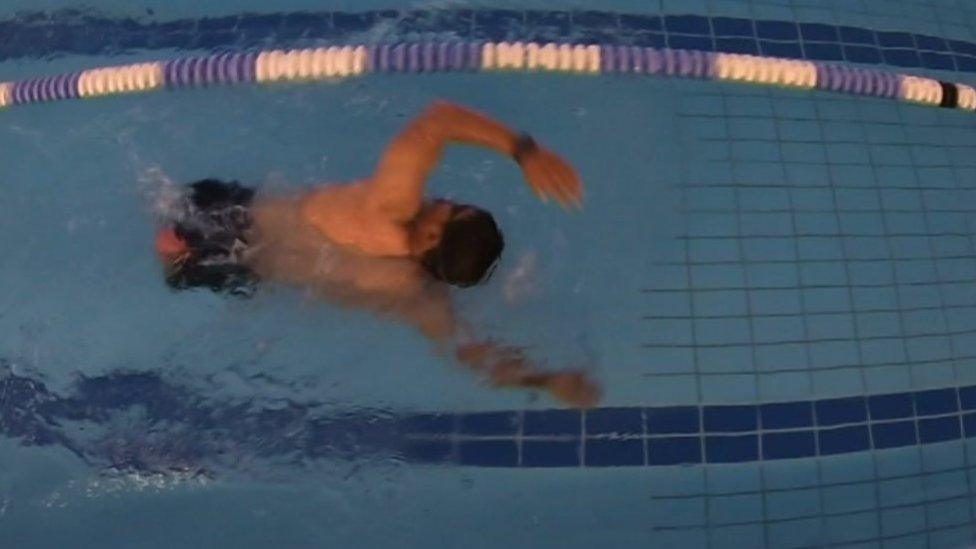
Mr Magar said sport helped him regain his confidence after the loss of his lower limbs
But after taking up skiing, golfing, cycling and climbing, he regained his confidence, he said.
Now in the final stages of an intense training regime for the Everest expedition, he has been swimming for an hour each day, on top of work in the gym.
He said: "Many people who are helping me, supporting me, honestly about 90% of them I don't know, but I am grateful, thank you so much. I feel that I'm doing something right."
His quest was almost derailed when Nepal banned double amputees from climbing the mountain in 2017, but he joined forces with other climbers to overturn the ruling.
Since then, he has had to prove his climbing credentials but a recent training expedition helped.
While wearing specially-designed prosthetics with spikes, it will take Mr Magar three times as long as other climbers to make the ascent, but he said he was confident he would achieve it.
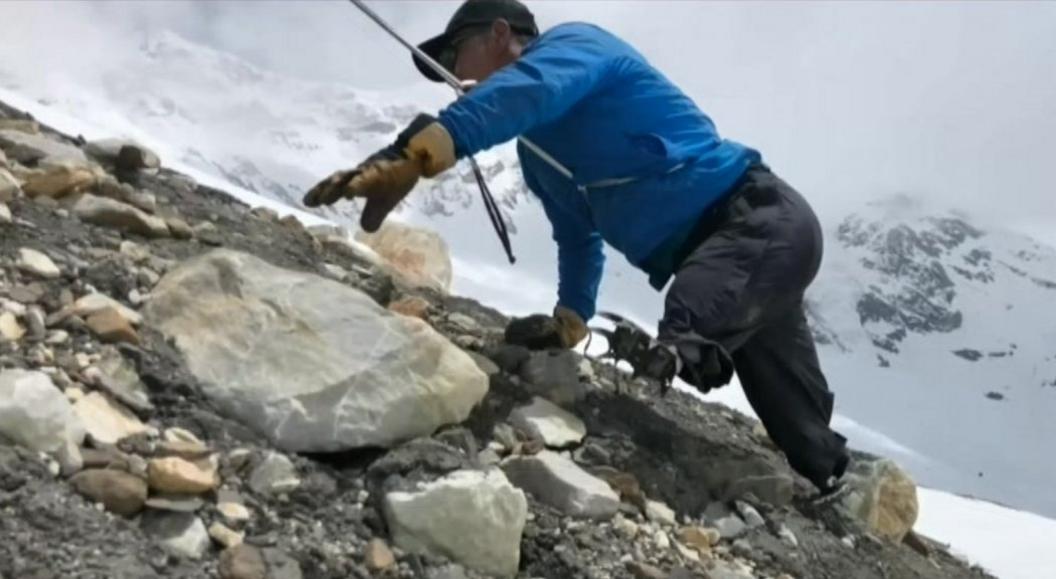
Hari Budha Magar uses prosthetics with built-in crampons

Follow BBC South East on Facebook, external, on Twitter, external, and on Instagram, external. Send your story ideas to southeasttoday@bbc.co.uk.
Related topics
- Published31 August 2022
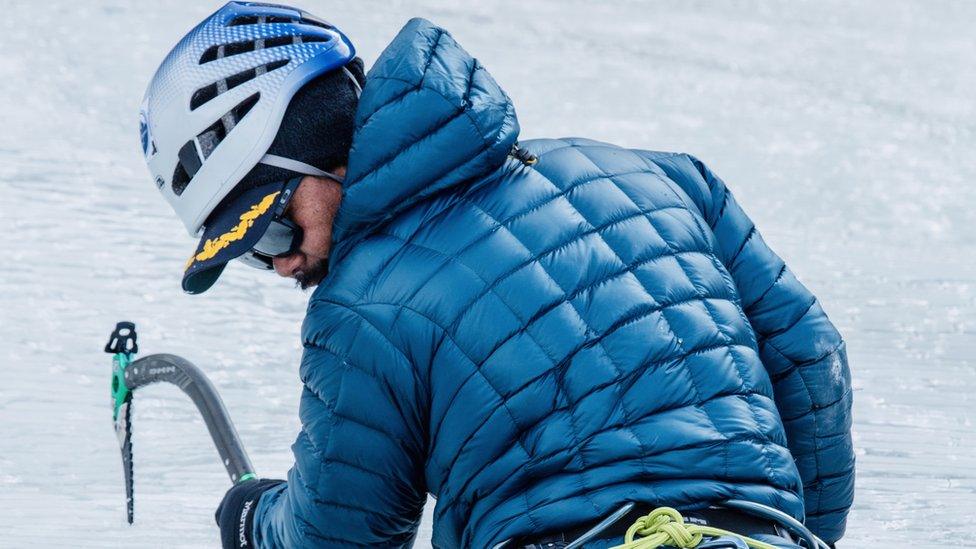
- Published30 December 2017
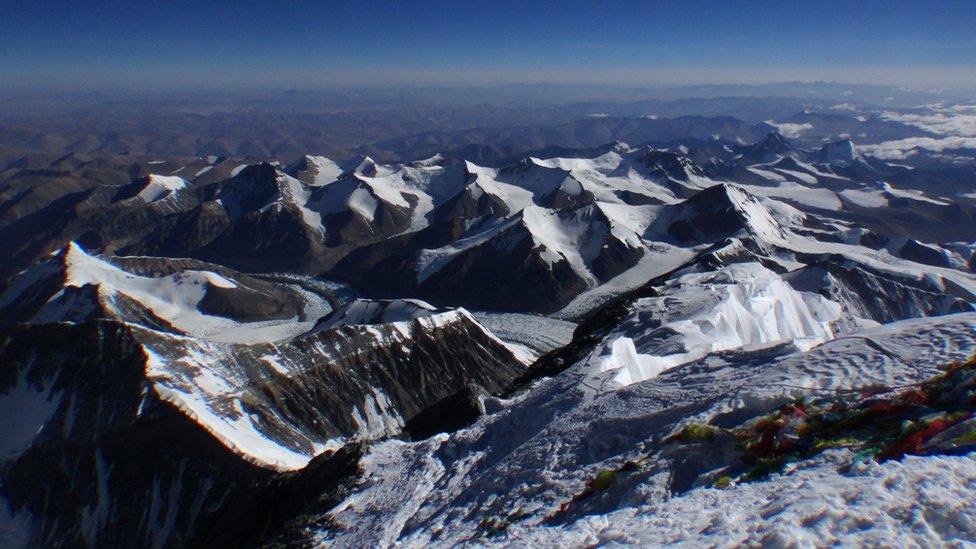
- Published27 July 2010